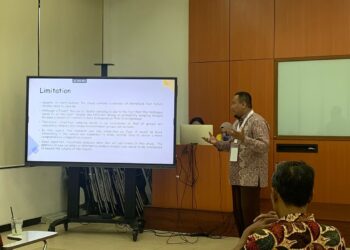In the previous article, we discussed the difference between business profits and capital gains. This time, we will continue the discussion on the tax aspects of business profits and capital gains.
Before further discussing the tax aspects of profit and capital gains, let’s consider the question below:
“If a company’s assets in the form of stock investments increase in value compared to the price at which the assets were purchased, is the difference in the increase in assets a taxable gain?” This paper will explore the taxation of business profits and capital gains.
Based on Article 4 paragraph (1) of the Income Tax Law, the tax object is income, which is any additional economic capacity received or obtained by the taxpayer, whether originating from Indonesia or from outside Indonesia, which can be used for consumption or to increase the wealth of the taxpayer concerned, by name and in any form, including:
c. Operating Profit;
d. Gains on the sale or the transfer of assets, including:
- gain due to the transfer of assets to companies, partnerships, and other entities as a substitute for shares or equity participation;
- gains due to the transfer of assets to shareholders, allies, or members obtained by companies, partnerships, and other entities;
- gains due to liquidation, merger, consolidation, division, split, business takeover, or reorganization under any name and in any form;
- gains due to the transfer of assets in the form of grants, assistance, or donations, except those given to blood relatives in a straight line of descent and religious bodies, educational bodies, and social bodies, including foundations, cooperatives, or individuals running micro and small businesses, the provisions of which are further regulated by the Minister of Finance Regulation, as long as there is no relationship with business, work, ownership, or control between the parties concerned; and
- gains due to the sale or transfer of part or all of the mining rights, participation in financing, or capital in a mining company.
Operating Profit and Fiscal Profit
Commercial profit is net profit, which is the difference between gross profit minus all costs incurred (operational costs and non-operational costs) plus income earned from non-operational activities, if any (interest income or income from the sale of company assets). Operating costs include marketing costs, administrative costs, and depreciation costs. Non-operating costs include interest expenses and costs (losses) related to asset sales.
Fiscal Profit is the net profit for one period calculated based on tax regulations and becomes the basis for calculating income tax. Before knowing exactly how much tax is payable, fiscal adjustments need to be made because there are some differences in treatment regarding income recognition and costs or expenses. The reconciliation performed will result in a fiscal correction that will affect the amount of fiscal profit and income tax (PPh) payable.
To obtain fiscal profit, the company must make adjustments to costs that are not allowed to be charged, such as donation costs, costs charged for the personal interests of shareholders, depreciation costs that are not permitted in tax regulations or methods of determining the cost of goods that differ from tax regulations. After obtaining the fiscal profit, the next step is the imposition of the corporate income tax rate (Article 17 or Article 31E of the Income Tax Law) on the fiscal profit.
Capital Gain
Then, what are the tax implications of capital gains? In accordance with the provisions of Article 4 paragraph (1) of the Income Tax Law as referenced above, gains due to the sale or transfer of assets are included as taxable income. Capital gains themselves consist of unrealized gains and realized gains. Realized and unrealized gains or losses are treated differently for tax purposes.
1. Unrealized gains
Unrealized gains refer to changes in the value of certain investments or assets that have yet to be sold or realized. That is, the gain exists only in book records or current market value but has yet to be realized through a sale and purchase transaction. In this case, tax is levied on the unrealized gain once the asset is realized/sold.
For example, if a company buys a security at Rp 50 per share. Today, the asset is still owned and is worth Rp 100 per share. In this case, the company earns a paper gain of Rp 50 per share, although it has yet to be realized. The Rp 50 gain has yet to be taxed.
2. Realized gain
Realized gain means a gain due to an upward change in the selling/market value of a particular investment or asset resulting from a transfer or sale transaction that has already taken place. The realized gain is subject to tax.
For example, a company pays Rp 1,000 for some shares. Two years later, the company sells the shares for Rp 1,200 at the market price. The realized gain is the difference of Rp 200 between the purchase price and the selling price of the shares. Thus, the Rp 200 gain is calculated as taxable income.
Answering the question at the beginning of this paper, “When a company’s assets in the form of stock investments increase in value compared to the price at which the assets were purchased, is the difference in the increase in assets a taxable gain?”
The answer to the question is that tax is not yet due if the gain is unrealized. However, if the shares are sold so that the gain is realized, the gain becomes the object of income tax.












